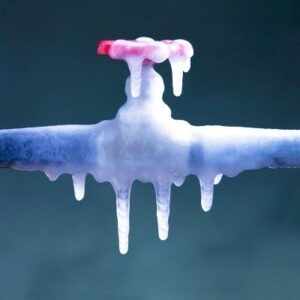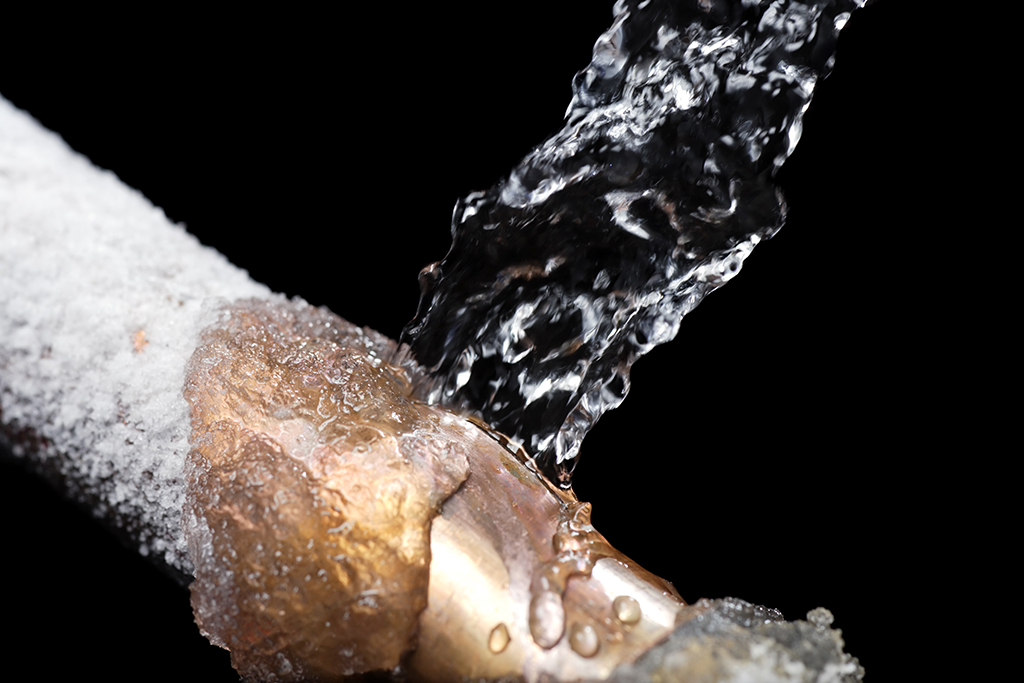Useful Plumbing Winterization Tips to Avoid Pipe Bursts in Cold Conditions
Useful Plumbing Winterization Tips to Avoid Pipe Bursts in Cold Conditions
Blog Article
Just how do you really feel with regards to How to stop pipes from freezing during the winter?

All property owners that live in warm environments should do their ideal to winterize their pipes. Failing to do so can mean catastrophe like icy, broken, or burst pipes.
Turn On the Faucets
When the temperature declines and it appears as if the cold temperature will last, it will assist to activate your water both indoors as well as outdoors. This will keep the water streaming via your plumbing systems. On top of that, the motion will certainly decrease the freezing process. Especially, there's no requirement to turn it on full blast. You'll end up squandering gallons of water by doing this. Rather, aim for regarding 5 declines per minute.
Open Up Cupboard Doors Hiding Plumbing
When it's cool outside, it would certainly be practical to open cupboard doors that are camouflaging your pipes. Doing this small method can maintain your pipes cozy and limit the potentially unsafe outcomes of freezing temperatures.
Take Time to Cover Exposed Piping
One simple and also awesome hack to heat up freezing pipelines is to wrap them with cozy towels. You can additionally utilize pre-soaked towels in warm water, just do not neglect to use protective gloves to protect your hands from the warmth.
Try a Hair Clothes Dryer or Warmth Gun
When your pipes are practically freezing, your reliable hair clothes dryer or warmth weapon is a godsend. If the warm towels do not aid dislodge any type of settling ice in your pipes, bowling warm air directly right into them might aid. You may end up harmful your pipelines while attempting to melt the ice.
Shut down Water When Pipes are Frozen
Switch off the main water shutoff promptly if you see that your pipes are totally icy or virtually nearing that stage. You will normally discover this in your cellar or utility room near the heating system or the front wall surface closest to the street. Transform it off immediately to avoid further damages.
With even more water, more ice will certainly stack up, which will eventually lead to break pipelines. If you are not sure about the state of your pipelines this winter season, it is best to call a professional plumber for an assessment.
All home owners who live in warm environments need to do their best to winterize their pipes. Failing to do so can lead to calamity like icy, cracked, or ruptured pipelines. If the hot towels do not help displace any type of resolving ice in your pipelines, bowling hot air straight into them may aid. Turn off the main water valve promptly if you discover that your pipes are totally frozen or practically nearing that stage. With more water, more ice will certainly pile up, which will ultimately lead to break pipelines.
How to Prevent Frozen Pipes This Winter: A Simple Guide
Have you ever dealt with frozen pipes in the winter? If so, you know what a pain they can be. When water freezes, it expands. This expansion puts a huge amount of pressure on your pipes and it can cause pipes to burst, making a huge mess of your home.
If they don’t burst, they may crack. This is a less noticeable problem, but it’s still a big deal. As water leaks, your home will accumulate moisture which leads to mold and mildew.
Do you know how to prevent frozen pipes to protect your home? Let’s talk about it. Keep reading for our brief guide for avoiding frozen pipes.
Keep Cabinet Doors Open
When it gets too cold outside it’s a good idea to leave the cabinet doors in your bathroom and kitchen open.
Why is that?
You want as much heat as possible to get to the pipes. The cabinets are dark and cold and they don’t get any air circulation. This makes the pipes more likely to freeze.
When you let the warm air from the rest of the house circulate around the pipes, it keeps them safe.
Apply Heat Tape and Insulation
It’s a good idea to insulate your pipes during the winter. There are several ways to do this on your own.
You can buy pipe insulators. They’re easy to attach to your pipes and easy to remove when the water gets warmer. They look like thick foam and they keep your pipes warm enough to not burst.
You can also apply heat tape (or insulation tape). These are self-adhesive so they’re easy to place and remove as well.
Know When to Call a Plumber
So what if you’ve already done these things but you’re still unsure if it’s enough? What if your pipes have already cracked or burst?
This is when it’s time to contact a plumbing professional.
They know how to prevent frozen pipes and manage pipes that are already frozen before they pose a problem. In the event of a cracked pipe, they can fix that as well.
https://www.mcwilliamsandson.com/blogs/how-to-prevent-frozen-pipes-this-winter-a-simple-guide

As a person who reads on Prevent Freezing and Bursting Pipes, I imagined sharing that editorial was sensible. Enjoyed reading our write up? Please share it. Let another person check it out. We treasure reading our article about Prevent Freezing and Bursting Pipes.
Professional touch awaits. Report this page